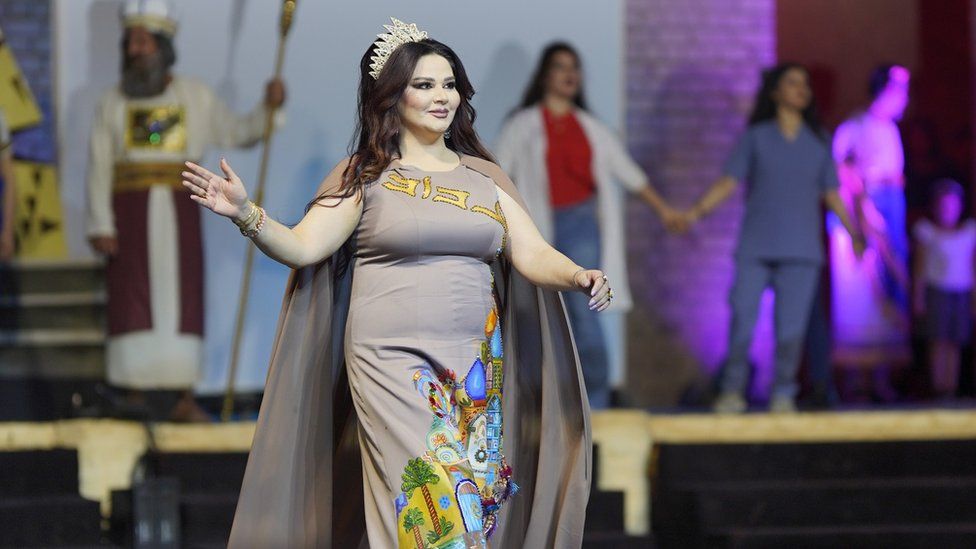Enas Taleb: Iraqi actress to sue Economist over 'fat' picture
- Published

An Iraqi actress says she is suing the Economist newspaper for using a picture of her to illustrate an article about Arab women being "fatter" than men.
Enas Taleb said that the image was used out of context without her permission, and violated her privacy. She also claimed it had been photoshopped.
The well-known actress and talk show host said in an interview that she has begun legal action in the UK.
The Economist did not immediately respond to requests for comment.
The article, entitled Why Women Are Fatter Than Men in the Arab World, was published in late July, using a picture of Ms Taleb taken nine months ago at the Babylon International Festival in Iraq.
It argues that poverty and societal restrictions keeping women in the home are among the reasons why more Arab women than men are overweight.
Another reason, the article states, may be that "curves" are viewed by some men as more attractive.
"Iraqis often cite Enas Taleb, an actress with ample curves (pictured), as the ideal of beauty," it says.
Ms Taleb labelled the article an "insult to the Arab woman in general and Iraqi women in particular", asking why the Economist "takes interest in fat women in the Arab world and not in Europe or the USA".
Speaking to Saudi-funded al-Arabiya TV from Jordan, she said she had faced "bullying comments" on social media.
She also told New Lines magazine she was healthy and happy with the way she looks.
"To me that is all that matters," she said.
Ms Taleb, 42, is among Iraq's best-known actresses, and has nine million followers on Instagram.
In her interview with al-Arabiya TV she said the Economist was unlucky to have angered her.
"They did not know that I'm a celebrity and a public figure," she said.
"I can turn crises into gains."
The Economist article also faced criticism on social media, accused it of being "racist", "sexist" and "shaming" Arab women.
Related Topics
- Published27 July 2022
- Published3 August 2022
- Published2 August 2022